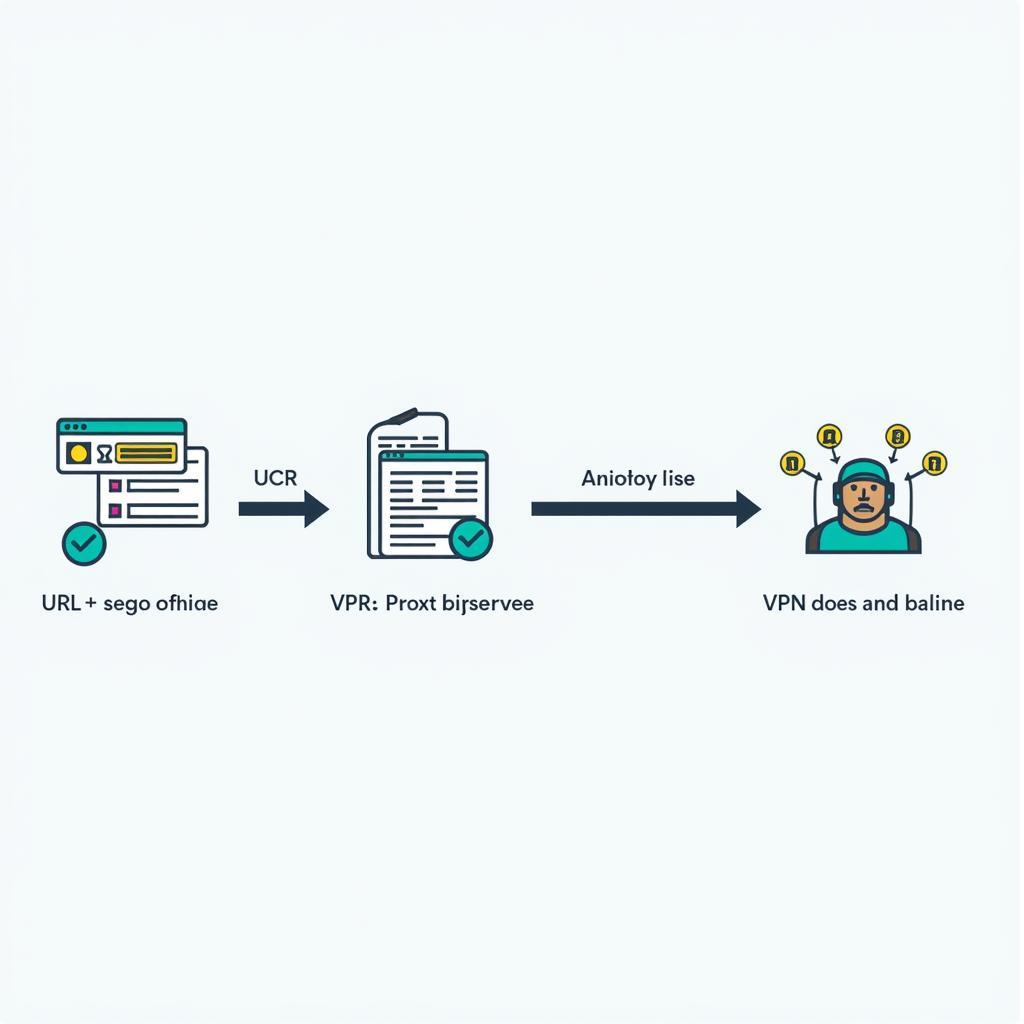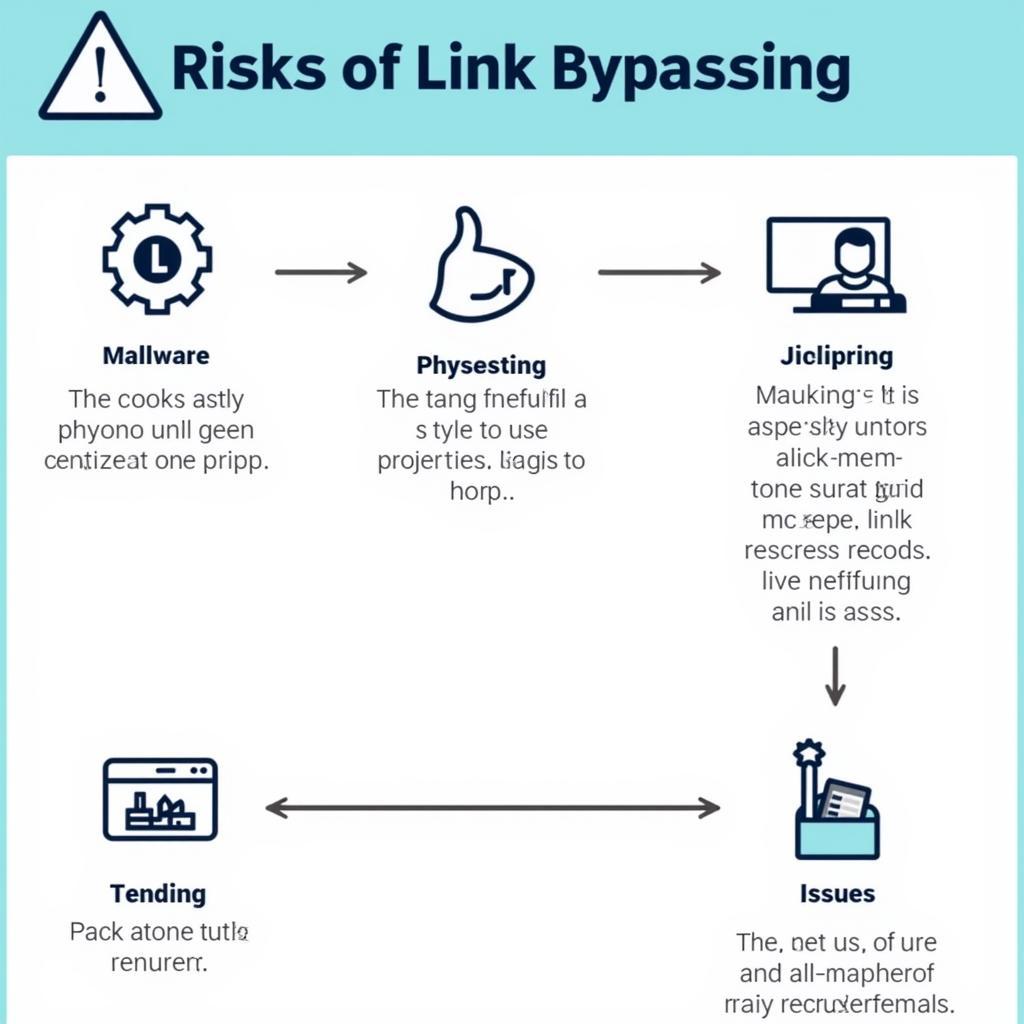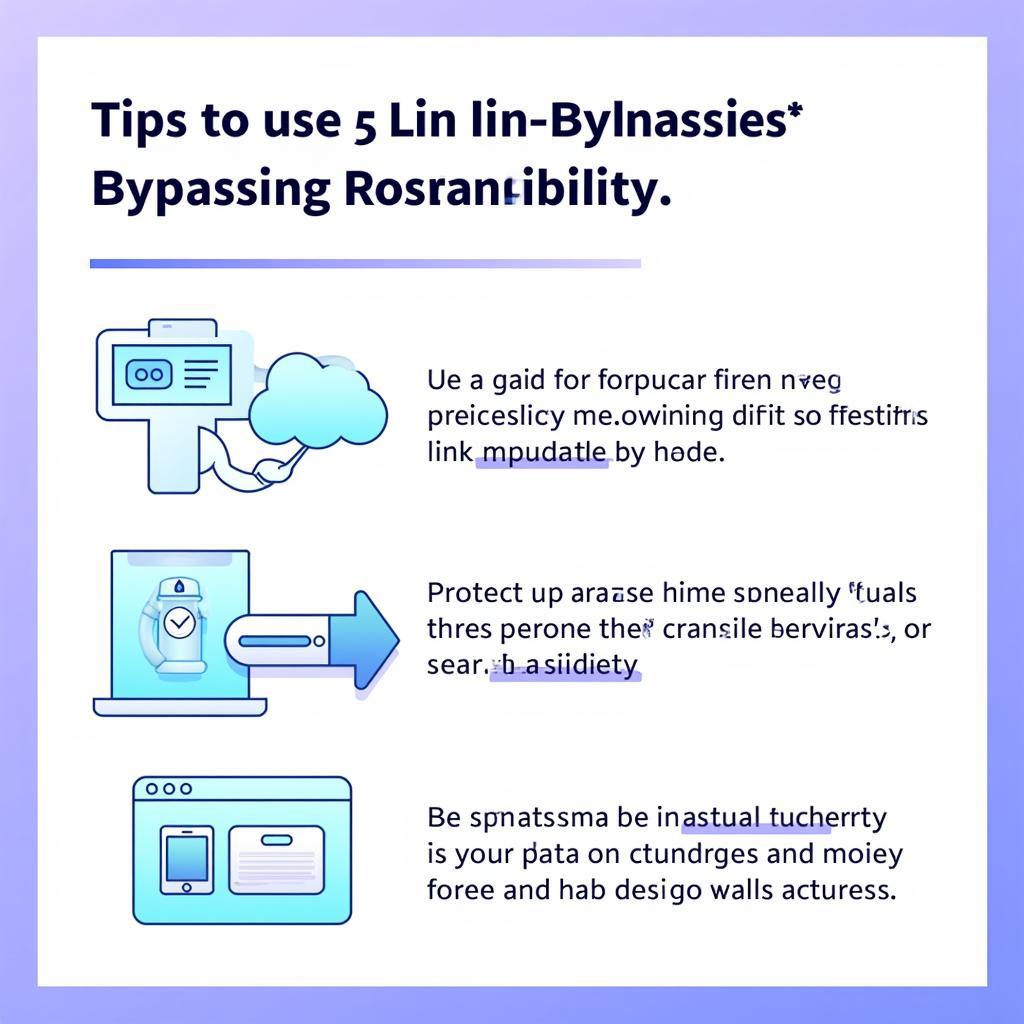Link Bypassing is a technique used to access websites or content that might be blocked by a firewall, censorship system, or other network restrictions. It involves manipulating the URL or using third-party services to “bypass” these barriers and reach the desired destination.
Understanding Link Bypassing
Before diving into the how-to’s, it’s important to understand why people use link bypassing and the potential risks involved.
Imagine trying to access a website at work or school only to find it blocked. This is where link bypassing comes in. By modifying the URL or using a proxy server, you can potentially circumvent these restrictions.
However, link bypassing can be a double-edged sword. While it can be used for legitimate reasons like accessing geographically restricted content, it can also be exploited for malicious purposes.
 Link Bypassing Methods
Link Bypassing Methods
Common Link Bypassing Techniques
Here are some of the most commonly used link bypassing techniques:
- URL Manipulation: This involves modifying the web address to bypass filters. For example, adding “https://” instead of “http://” or using IP addresses instead of domain names.
- Proxy Servers: These act as intermediaries between your device and the target website, masking your IP address and making it appear as if you’re browsing from a different location.
- VPNs (Virtual Private Networks): VPNs encrypt your internet traffic and route it through a secure server, providing anonymity and bypassing restrictions.
- Shortened URLs: Services like Bitly or TinyURL can be used to disguise the actual destination of a link, potentially bypassing filters that block specific domains.
 Risks of Link Bypassing
Risks of Link Bypassing
Is Link Bypassing Legal and Safe?
The legality and safety of link bypassing depend on various factors, including your location, the purpose of bypassing, and the specific techniques used.
- Legality: In some countries, bypassing censorship or accessing blocked content might be illegal. It’s crucial to be aware of and comply with local laws and regulations.
- Security: Using unreliable proxy servers or VPNs can expose your data to risks, as they might not have strong security measures in place.
- Ethics: While link bypassing can be used for legitimate reasons, it’s important to use it responsibly and ethically.
Using Link Bypassing Responsibly
If you choose to use link bypassing, do it cautiously and responsibly:
- Choose reputable services: Opt for well-established and trusted VPN providers or proxy servers.
- Be mindful of your data: Understand the risks involved and avoid accessing sensitive information while using public or untrusted networks.
- Stay informed: Keep yourself updated about the legal and security implications of link bypassing in your region.
 Responsible Link Bypassing
Responsible Link Bypassing
Conclusion
Link bypassing can be a valuable tool for accessing restricted content, but it’s important to use it with caution. Understand the risks involved, choose reliable services, and prioritize your online safety.
Need help navigating the digital world safely? Contact our support team at Phone Number: 0902476650, Email: [email protected] or visit us at 139 Đ. Võ Văn Kiệt, Hoà Long, Bà Rịa, Bà Rịa – Vũng Tàu, Vietnam. We have a 24/7 customer support team ready to assist you.





